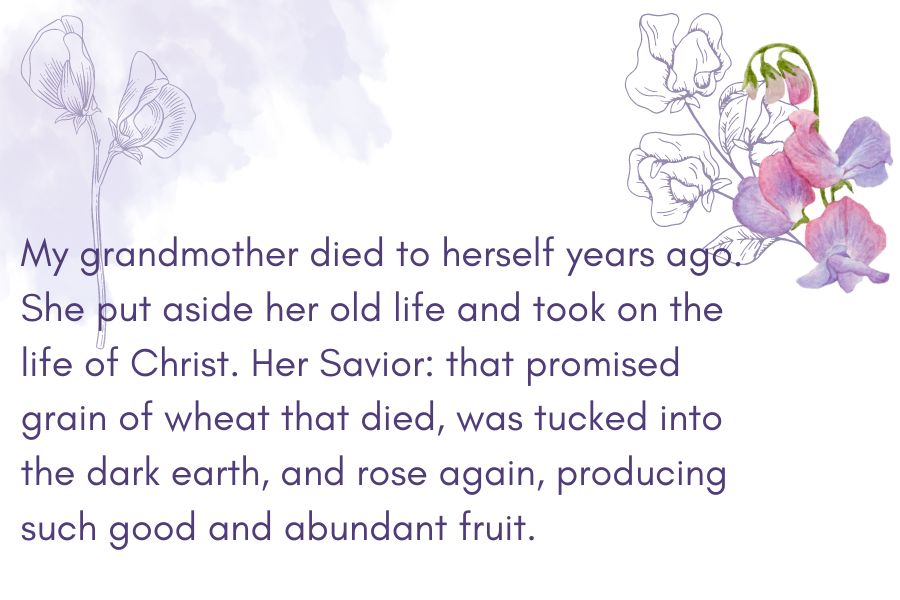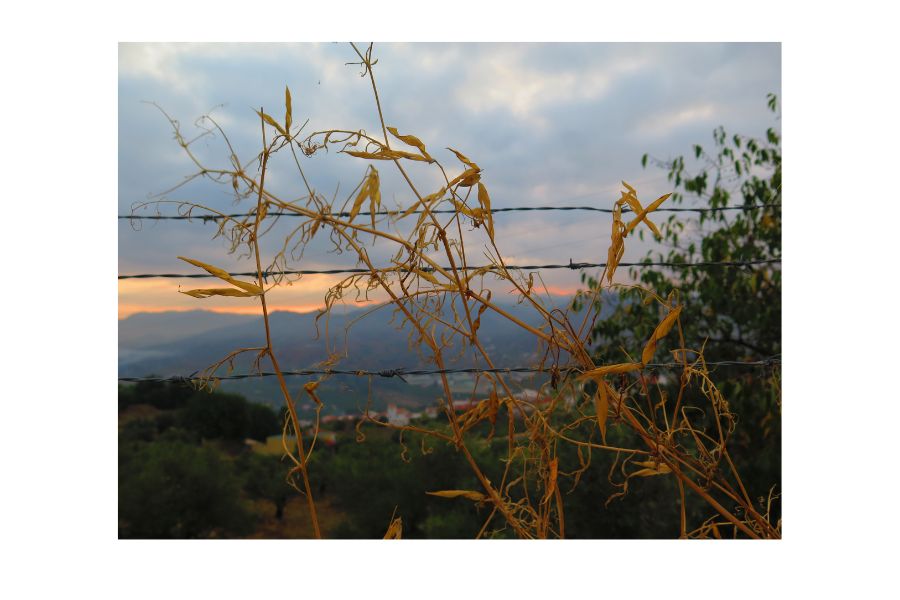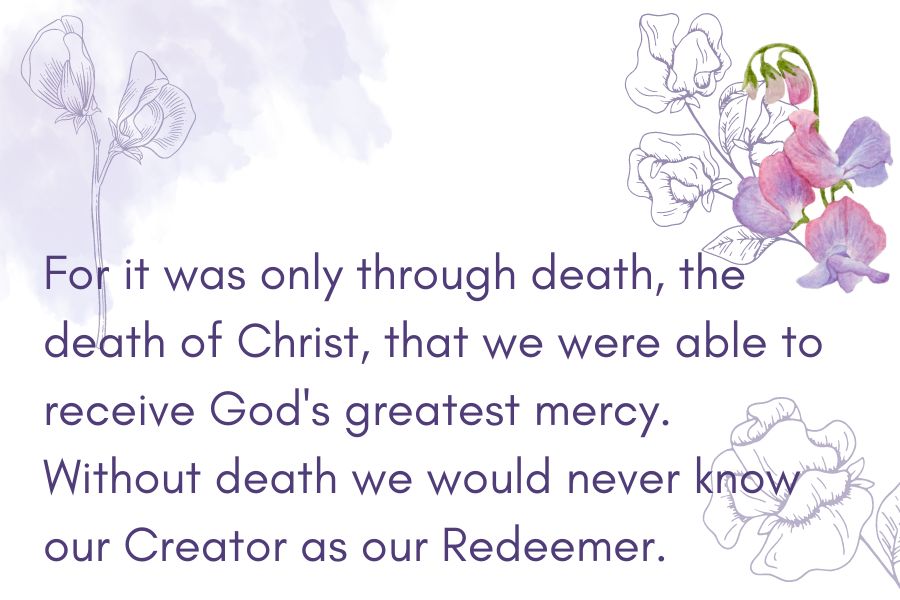My grandmother died today.
In one way, it seems odd that the death of a 90 year old should be unexpected. Certainly we expected it someday. Just not now. But then, can we—should we—ever truly expect death? The wrongness of death is baked into our souls. We feel it when we hear about the death of a far off child or an acquaintance. But when death comes for those we love, we are cut to the quick, left gasping for breath that someone so deeply connected to us is simply not here anymore.
I was planting sweet peas when my mom called me. Tucking the little round seeds into trays of damp soil, making sure to cover each just a little. Sweet Peas won’t germinate unless they have darkness.

Sweet Peas won’t germinate unless they have darkness.
The hospital said there wasn’t much time. Maybe not even time for those closest to get there. I am far. Five years ago we moved eighteen hundred miles from the land and the people who grew me.
When we left, I told my grandma goodbye.
Even then, dementia was stealing her memories. She still knew me. And she knew my kids, even though she couldn’t always remember their names. But I knew those memories wouldn’t hold over time and distance. And though we’ve been back many times, she never did call me by name again.
Names are important. As I tucked the seeds into their trays, I carefully labeled their tags, hoping that this year I will manage to keep the tag and the trays together. Most years, they seem to get separated somehow and I end up growing flowers whose names are a bit of a mystery to me. They are still beautiful and their blossoms and their fragrance bring me endless delight. But I always wish I knew their right names.
Yes, names are important, but a misnamed rose can still bring us joy.
The last time I was “back home” we went to pizza with my grandma. Pizza was always her favorite. She told the woman at the register that I was her sister. It was kind of bittersweet fun to let Grammie enjoy a lunch with her long-dead “sister.” But of course it would have been more fun (for me) to be me.
As I couldn’t think of much else to do after I hung up with my mom, I kept planting my flowers, salty tears mixing with damp earth. One Sweet Pea seed will grow into a tall vine smothered in flowers that will perfume the entire yard. The books say that one vine can produce 100 stems of flowers.

“Truly, truly, I say to you, unless a grain of wheat falls into the earth and dies, it remains alone; but if it dies, it bears much fruit.” John 12:24
My grandmother died to herself years ago. She put aside her old life and took on the life of Christ. Her Savior: that promised grain of wheat that died, was tucked into the dark earth, and rose again, producing such good and abundant fruit. God took her life, surrendered to the cross, and from it brought forth flowers of great beauty as she poured into those around her a love of art and creativity, of beauty, of practical jokes, of parties, and of people. If there wasn’t an event on the calendar, she would likely make one up. At an age when many decide to spend their time and money on long trips with themselves, my grandmother surrounded herself with family—even with teenagers! My siblings and I, and all our friends, always knew that we were welcome and wanted at any and all times. The flowers that blossomed from my grandma’s life in Christ were bountiful and beautiful.
Likewise my brothers, you also have died to the law through the body of Christ, so that you may belong to another, to him who has been raised from the dead, in order that we may bear fruit for God. Romans 7:4
Sweet Peas are spring flowers. As the summer heat settles in, the blossoms slow and the plants tire. Eventually the flowers make seeds and the plant dies. Sweet peas only live one short season. We tire too. Our earthly bodies wear out. We grow weak. Bones break. Memories fade. Hearts grow weary and fail. Unless Christ returns first, we will all die. Ashes to ashes. Like the seeds, our bodies are returned to the ground. And then what?
Death is a result of the fall, an unavoidable consequence of sin. A curse. But is death a mercy too? God drove our first parents out of the garden in order to keep them from a fate worse than death—from the fate of the undying dead.

Death is a result of the fall. A curse. But is death a mercy too?
Literature has long played with our primal fears of being dead and yet unable to die.
In books we read of vampires. We see weary searchers who find what they seek—the fountain or the cup that grants eternal life—and we shudder as they face the consequences of taking that fateful sip. We all want to go on living—but not here. Life in a broken world, with a broken body, must end at some point. The alternative is too horrible.
And so we are given death. Ashes to ashes, dust to dust. Like a seed, our bodies return to the ground. And like everything that flows from the hands of our Lord, this is for our good.
For it was only through death, the death of Christ, that we were able to receive God’s greatest mercy. Without death we would never know our Creator as our Redeemer. Death was our arch-enemy. But there is nothing in all of creation that is so strong that it doesn’t bend to the will of its Maker. Thus, according to his plan, because of his abundant grace and mercy, God took the curse of death, bent it to his will, and redeemed his children.
Because Christ died the ultimate death and rose in victory for all who trust in him, we will one day shed this body and in its place we will gain a body incorruptible. Just as my flower seeds will one day burst forth from the little beds into which they have been tucked, so too will my grandmother—and you, if you are his child—and I myself—burst forth from the dust and blossom anew with bodies that will never tire. Never break. Never forget.
